AESA PROGRAMMES
- Building R&D Infrastructure
- Developing Excellence in Leadership, Training and Science in Africa (DELTAS Africa)
- Human Heredity and Health in Africa (H3Africa)
- Africa’s Scientific Priorities (ASP)
- Innovation & Entrepreneurship
- Grand Challenges Africa
- Grand Challenges Innovation Network
- Rising Research Leaders/Post-Docs
- AESA RISE Postdoctoral Fellowship Programme
- African Postdoctoral Training Initiative (APTI)
- Climate Impact Research Capacity and Leadership Enhancement (CIRCLE)
- Climate Research for Development (CR4D)
- Future Leaders – African Independent Research (FLAIR)
- Critical Gaps In Science
- Clinical Trials Community (CTC)
- Community & Public Engagement
- Mobility Schemes: Africa-India Mobility Fund
- Mobility Schemes: Science and Language Mobility Scheme Africa
- Research Management Programme in Africa (ReMPro Africa)
- Science Communication/Africa Science Desk (ASD)
- Financial Governance: Global Grant Community (GGC)
- AAS Open Research
- CARI Programmes
- Evidence Leaders Africa (ELA)
All Fellows
AAS Fellows and Affiliates are distinguished researchers who represent the continent’s talent and promising men and women from across the globe.
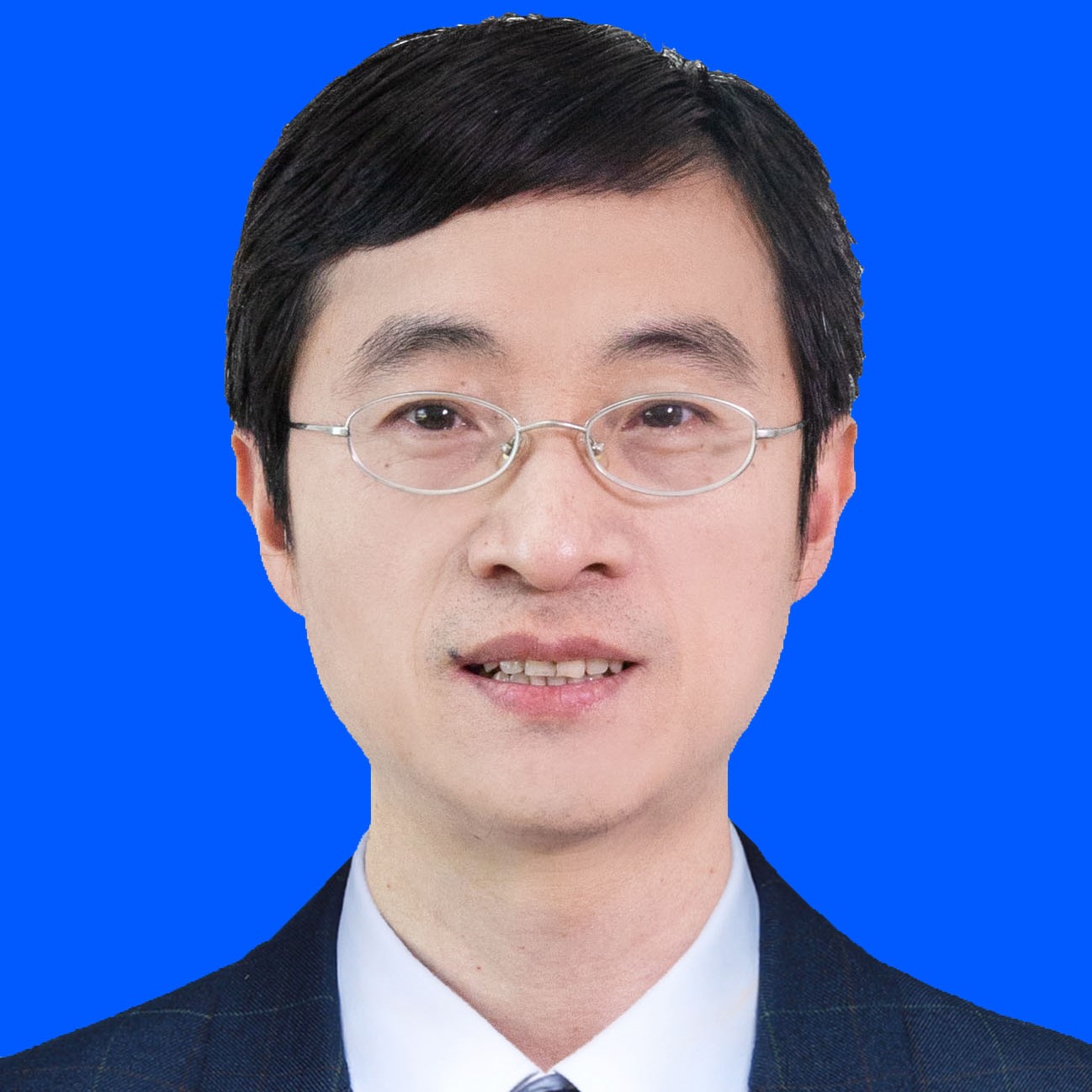
Geological, Environmental, Earth & Space Sciences
China
Shuanggen Jin is currently Vice-President and Professor at Henan Polytechnic University and Professor at Shanghai Astronomical Observatory, CAS, China. He was formerly Visiting Fellow at University of New South Wales, Australia, Post-Doc and Senior Scientist at Korea Astronomy and Space Science Institute, Research Fellow at University of Texas at Austin, USA, Professor at Bulent Ecevit University, Turkey, and Dean and Professor at Nanjing University of Information Science and Technology, China.
Jin received the B.Sc. degree in Geodesy from Wuhan University, China in 1999 and the Ph.D. degree in Geodesy from the University of Chinese Academy of Sciences, China in 2003. His main research areas include Satellite Navigation, Remote Sensing, and Space/Planetary Exploration. He was recognized for exemplary leadership in Earth observation and applications with developing new GNSS models and using GNSS-reflected signals. He was a pioneer in advancing GNSS Earth Science and promoting multidisciplinary geodesy-geophysics through studies of atmospheric disturbances, fluid mass loading and solid Earth activities. He has published over 300 peer-reviewed ISI/SCI papers, 20 patents/software copyrights and 12 books/monographs with more than 10000 citations and H-index>52. He has led over 30 projects from Europe’s ESA, China-Germany (NSFC-DFG), China’s National Key R&D Program and NSFC. He has supervised over 30 Ph.D and 50 M.Sc as well as 20 Post-Docs from China, Africa and Europe.
Jin has been Chair of IUGG Union Commission on Planetary Sciences, President of International Association of Planetary Sciences (IAPS), President of the International Association of CPGPS, Editor-in-Chief of International Journal of Geosciences, Editor of Geoscience Letters, Associate Editor of IEEE Transactions on Geoscience & Remote Sensing and Journal of Navigation, Editorial Board member of Remote Sensing, GPS Solutions and Journal of Geodynamics. He has received First Prize of Satellite Navigation & Positioning Progress Award, First Prize of China Overseas Chinese Contribution Award, Fellow of African Academy of Sciences, Fellow of Electromagnetics Academy, Fellow of International Union of Geodesy and Geophysics (IUGG), Fellow of International Association of Geodesy (IAG), Member of European Academy of Sciences, Member of Russian Academy of Natural Sciences, Member of Turkish Academy of Sciences, Member of Academia Europaea, 100-Talent Program of CAS, World Class Professor of Ministry of Education and Cultures, Indonesia, Chief Scientist of National Key R&D Program, China, Elsevier China Highly Cited Scholar (2020-2022), and World's Top 2% Scientists (2020-2022).
Jin is an exceptional leading scientist in his scientific areas with significant contributions to international cooperation in satellite navigation and space geodesy. He has promoted high-level cooperation between China and Africa in environmental and climate change as well as the world.

Physical Sciences
South Africa
A PhD from Columbia University, Bruce Mellado, is a Professor at the University of the Witwatersrand, a Senior Researcher of iThemba LABS and serves as the Director of the Institute for Collider Particle Physics. Currently, he is the Chairperson of the Institutional Board of the Tile Calorimeter at the ATLAS experiment at the European laboratory CERN. He was the National Contact Physicist of South Africa at the ATLAS experiment and the co-Chair of the Nuclear Particle and Radiation Division of South African Institute of Physics. He is the recipient of several awards and fellowships, including the TW Kambule-NSTF Award for Research in 2021 and the Vice-Chancellor Award for Research in 2022. Prof. Mellado is an Internationally acclaimed, B1 rated researcher of the National Research Foundation.
Prof. Mellado is an expert on the Higgs boson – a sub-atomic particle that is thought to give matter its mass – and was a leading participant in its discovery that was announced in 2012 and led to the Nobel Prize in Physics being awarded in 2013 to François Englert and Peter W. Higgs. Among his contributions here is the proposal and demonstration that Higgs boson candidates can be classified according to the presence of hadronic jets. Prof. Mellado is also known for his seminal contributions to the proposal of the Large Hadron Electron Collider as a Higgs boson facility.
Prof. Mellado is also the Co-President of the Africa-Canada Artificial Intelligence Data Modelling Consortium.
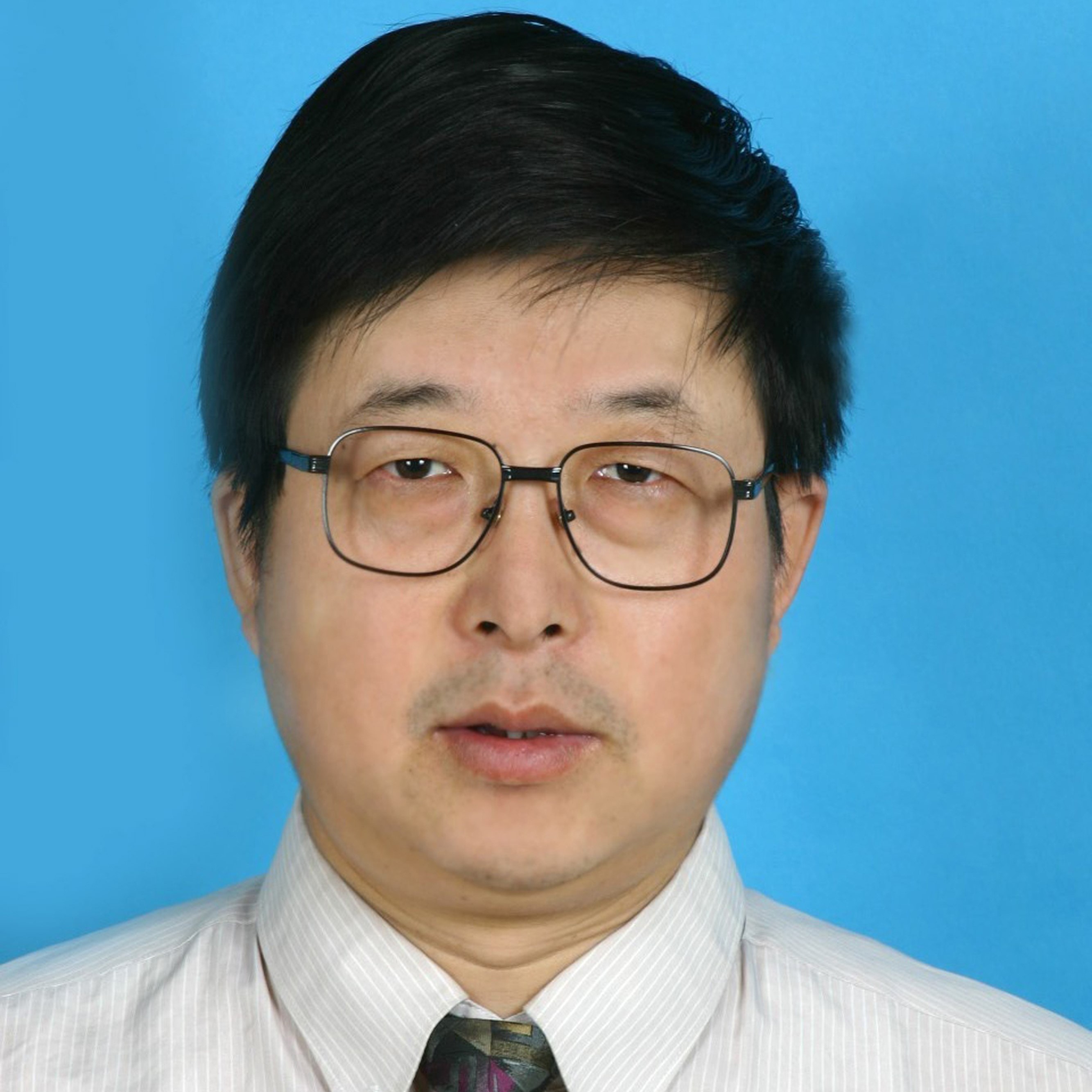
Agricultural & Nutritional Sciences
China
Dr. Tianyu Wang is Distinguished Professor, Senior Chief Scientist, at the Institute of Crop Science, Chinese Academy of Agricultural Sciences (CAAS). Dr. Wang’s scientific fields focus at crop germplasm, genetics and breeding. His career has been devoted to solving problems in millet and corn production by excavating and utilizing excellent germplasm resources. His work in foxtail millet led to the doubling of its production efficiency, and promoted revolutionary changes in cultivation methods, which have immensely benefited China, and countries around the world. Dr, Wang has subsequently been engaged in promoting scientific and technological progress in the maize research, by enhancing resistance to biological and abiotic stress. His research and scientific work, active advocating, broad research network and government actions have worked towards transformation of agriculture by utilization of more than 1.2 million hectare of foxtail millet, and 25 million hectares of maize. His scientific work vastly fostered the understanding from the phenotypical characterization ecological evaluation to molecular biology and genomic levels of the maize and foxtail millet. Dr. Wang has authored more than 280 research articles in academic journals and some flagship papers were selected as one of the 100 Best Paper in China in 2017, F5000 and so on. His papers have been cited over 6,800 times.
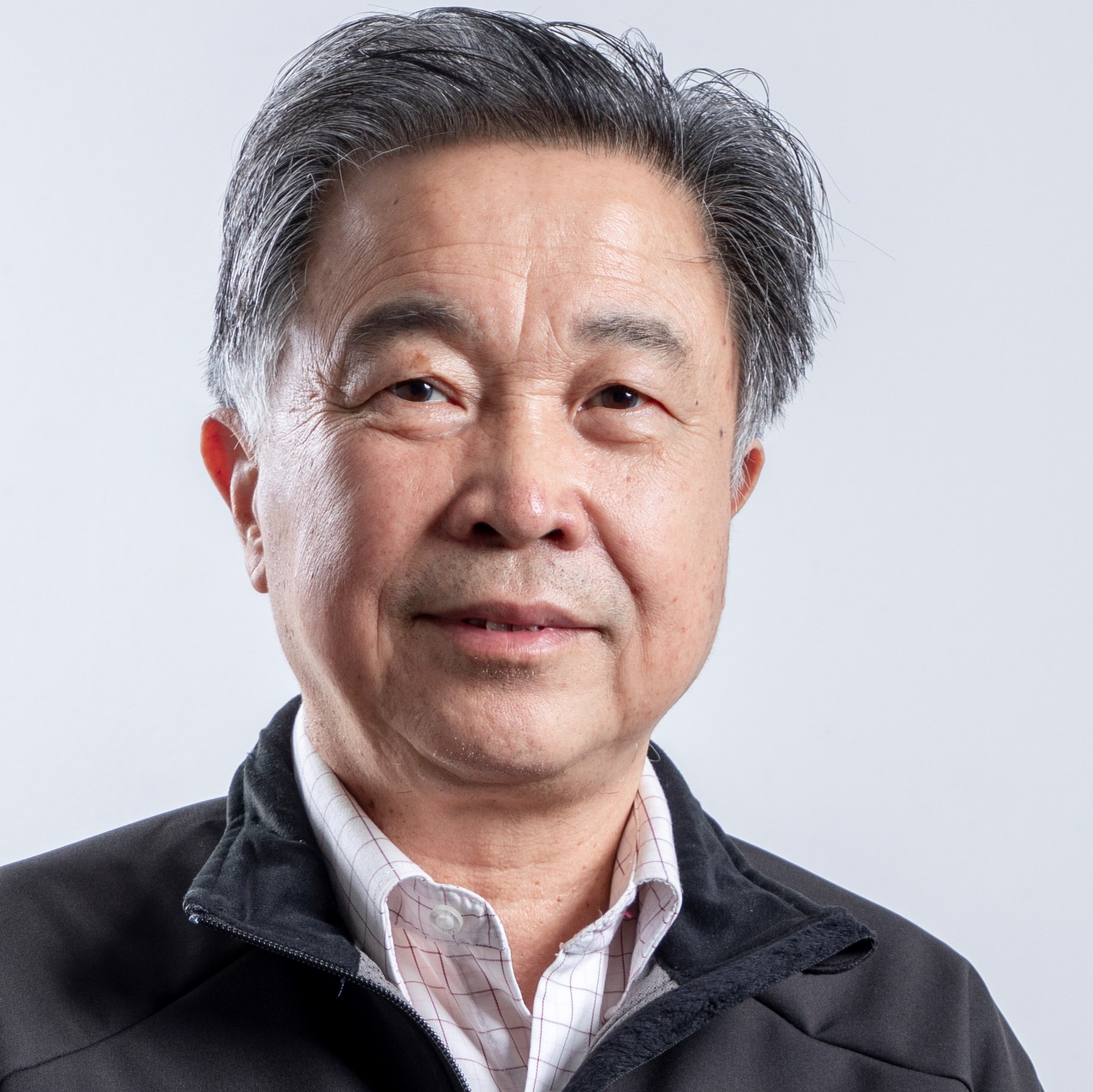
Biosciences
China
Dr. Yang received his Ph.D. from University of Copenhagen, Denmark (1985-1988), and post-doctoral training in France (1988-1990) and the USA (1990-1994). He, as Chairman and co-founder of BGI-China which is regarded as one of the most important contributors to the genome research in the world, making a significant contribution to the International Human Genome Project (HGP, 1999-2003), the International HapMap Project (HapMap, 2002-2006), the International 1000 Genomes Project (G1K, 2008-2012), the International Cancer Genome Project (ICGP, 2008-present), the international collaboration on Yeast Genome Redesign and Synthesis (Sc2.0, 2011-2017), as well as sequencing and analyzing genomes of many other animals, plants, and microorganisms, with >600 publications in the internationally prestigious peer-reviewed journals, including >120 in Cell, Science, Nature and its series, with an H-index = 115 (Nov. 08, 2022).
Dr. Yang has been actively involved in international activities. He is the founder and Chair of the annual meetings of the International Conference on Genomics (ICG1-17) since 2006. He served as a member of the UNESCO’s International Bioethics Committee (IBC, 1998-2004) and an official representative of the Chinese Government in the Inter-Governmental Bioethics Committee (IGBC, 2004-2005), a member of the Expert Group on Biotech for the High Commissioner on Human Rights of the United Nations (2002-2003), a member of the WHO Working Groups (2002, 2005, etc.), as well as a member of the International Research Panel of the Presidential Commission for the Study of Bioethical Issues of the United States (2011-2014). Yang was also a member of the European Focus on Biotechnology in China (EFBIC, 2003-), and vice President of European Action on Global Life Sciences (EAGLS, 2005-). He is also Chair of the TWAS Advisory Committee on Covid (2021-present).
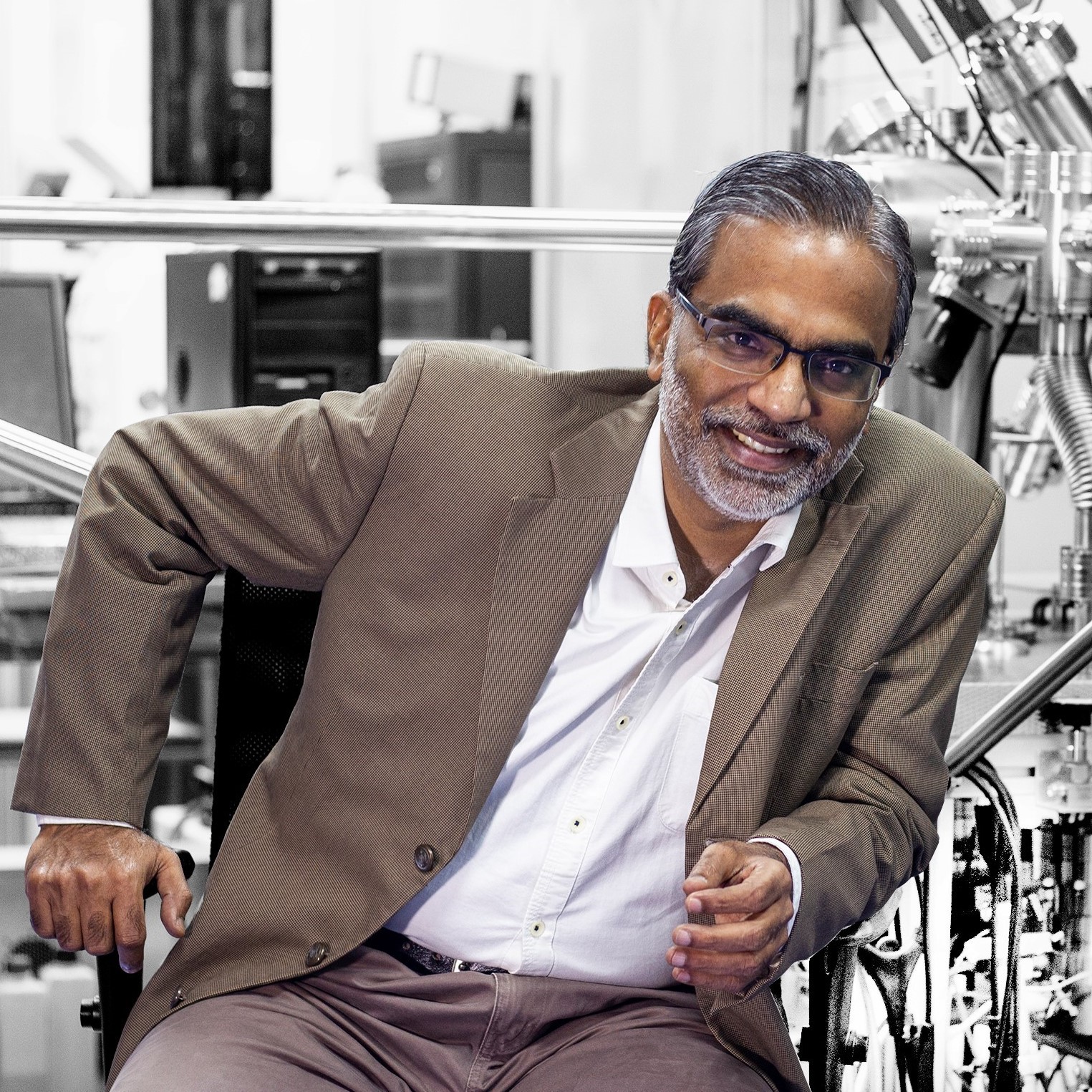
Chemical Sciences
India
Thalappil Pradeep is an Institute Professor, the Deepak Parekh Institute Chair Professor and a Professor of Chemistry at the Indian Institute of Technology Madras, Chennai, India. He studied at the University of Calicut, Indian Institute of Science, UC Berkeley, and Purdue. His research interests are in molecular and nanoscale materials. He is an author of over 525 papers in journals and is an inventor of over 100 patents or patent applications. In addition to the work on advanced materials, he is involved in the development of affordable technologies for drinking water purification. His pesticide removal technology has reached about 10 million people. Along with his associates, he has incubated seven companies and three of them have production units. His arsenic removal technology, approved for national implementation, is delivering arsenic free water to about 1.2 million people every day. He is a recipient of several awards including the Shanti Swaroop Bhatnagar Prize, The World Academy of Sciences (TWAS) prize, Padma Shri, Nikkei Asia Prize and the Prince Sultan Bin Abdulaziz International Prize for Water. He is a Fellow of all the science and engineering academies of India, The World Academy of Sciences and American Association for the Advancement of Science. He is a distinguished professor in a few institutions in India and is also on the graduate faculty of Purdue University. He is the author of several books and is many important journals and is an associate editor of ACS Sustainable Chemistry & Engineering. He has authored popular science books in Malayalam and is the recipient of Kerala Sahitya Akademi Award for knowledge literature. He has received the Lifetime Achievement Research Award of IIT Madras and Distinguished Alumnus Award of IISc. As part of his philanthropic activities, he supports a school in his village where 500 students are on rolls.
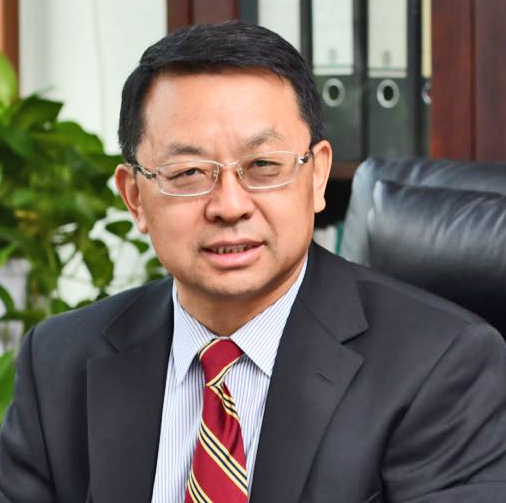
Agricultural & Nutritional Sciences
China
Professor Fusuo Zhang, an internationally renowned expert in plant nutrition, has committed his career spanning more than 40 years to education and scientific research aiming to solve agricultural production problems for smallholder farmers. He is a major contributor to establishment of the disciplines of Plant Nutrition as well as Agricultural Resources and Environment in China; he significantly expanded the quality and range of research work in plant nutrition, greatly promoted the development of these disciplines in China for talent training, science & technology innovation, and social development, as well as contributed immensely to the development of global plant nutrition research.
He discovered an importance of plant root exudates for nutrient acquisition and developed root-zone nutrient management and a series of integrated soil-crop system management technologies to increase crop yield and nutrient-use efficiency, while reducing environmental footprint. He and his network of partners created a unique agro-technology service model named “Science and Technology Backyard” (STB), providing services to farmers at zero distance, zero time lag, zero threshold, and zero cost. He formulated new technology application models of “soil testing by government, fertilizer formulation by agricultural expert, fertilizer product manufacturing by industry, and joint services”. Through the platform, 20.9 million farmers managed to achieve a net increase of 33 Mt grains and a decrease of 1.2 Mt nitrogen fertilizer use and 0.3 Mt N losses during the 10-year period, equivalent to US$12.2 billion value across the area of 37.7 million ha.
He has published 588 papers, including Nature and Science (6 papers), and PNAS (4 papers) (H-index = 105). He was selected as Academician of The World Academy of Sciences, Academician of International Eurasian Academy of Sciences, and Academician of the Chinese Academy of Engineering. He obtained 2014 Award for Agricultural Science from The World Academy of Science, 2018 Innovation Award of National Poverty Alleviation Award, and 2020 GCHERA World Agriculture Prize. He has promoted high-level cooperation between China and Africa in food security and green development of agriculture.
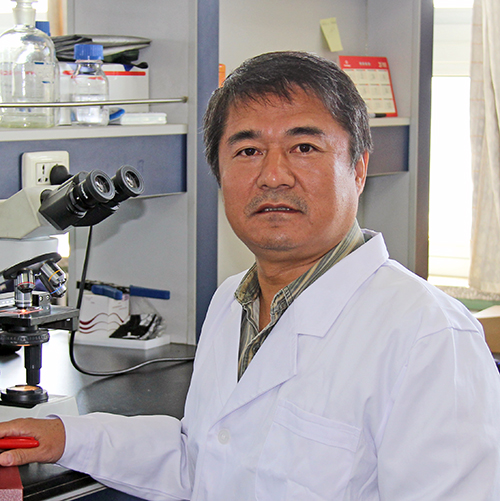
Agricultural & Nutritional Sciences
China
Dr. Wu graduated with his bachelor degree from Henan Agricultural University in 1984. In 1987, he received his Master degree from Zhejiang Agricultural University. From 1987 to 1992, he worked as a researcher in Henan Academy of Agricultural Sciences. In 1994, he obtained his PhD from Chinese Academy of Agricultural Sciences (CAAS), and then he worked for the Institute of Plant Protection of CAAS as an associate professor / professor (1994-2002) and later as director general / professor (2003-2011). During 2012-2021, he took the position of the vice President of CAAS, and was appointed President of CAAS in late 2021.
Dr. Wu’s research focuses on population ecology and management of insect pest. Having published more than 300 papers in the referred journals, including Nature and Science, Dr. Wu can be considered as one of the most productive entomologists in the world. He has made significant academic contributions to the field of agricultural entomology, especially in the research areas of population monitoring and integrated management for several important pests worldwide, such as cotton bollworm, plant bug and fall armyworm. His scientific findings have not only contributed to academics, but also made significant impacts on pest management in crop production. The integrated pest management strategies developed by his lab, in applying the principles of agro-ecology and moving towards the concept of a sustainable agriculture, have been widely used for insect pest management in Chinese agricultural system, which plays very important roles in reducing the utilisation of insecticides and farming risk and improving economic output of these crops.
Dr. Wu sits on numerous academic organisations and professional panels and committees, including the vice chair of the Global Fall Armyworm Steering Committee of FAO, chair of Plant Protection Expert committees of China, and honorary president of China Society of Plant Protection.
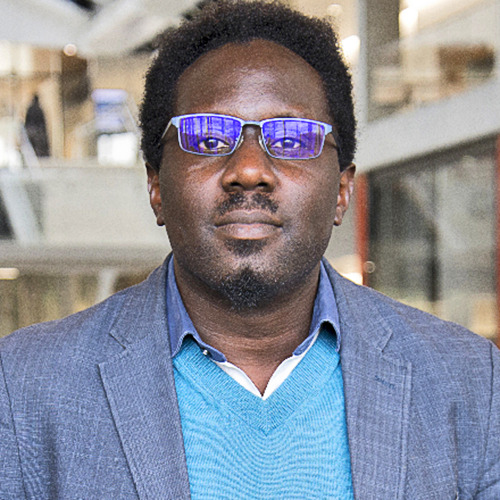
Physical Sciences
United States
Deji Akinwande is an Endowed Professor at the University of Texas at Austin. His research focuses on 2D materials, pioneering device innovations from lab towards applications. He received the PhD degree from Stanford University in 2009. Prof. Akinwande has been honored with the 2018 Fulbright Specialist Award, 2017 Bessel-Humboldt Research Award, the U.S Presidential PECASE award, the inaugural Gordon Moore Inventor Fellow award, the inaugural IEEE Nano Geim and Novoselov Graphene Prize, the IEEE “Early Career Award” in Nanotechnology, the NSF CAREER award, several DoD Young Investigator awards, and was a past recipient of fellowships from the Kilby/TI, Ford Foundation, Alfred P. Sloan Foundation, 3M, and Stanford DARE Initiative. His research achievements have been featured by Nature news, Time and Forbes magazine, BBC, Discover magazine, Wall Street Journal, and many media outlets. He serves as an Editor ACS Nano and Nature NPJ 2D Materials & Applications, and on the editorial board for Science. He is the co-Chair of the Gordon Research Conference on 2D electronics and was a past Chair of the 2018/2019 Device Research Conference (DRC), and the Nano-device sub-committee for the 2018 IEEE IEDM Conference. He is a Fellow of the IEEE, the American Physical Society (APS), and the African Academy of Sciences.
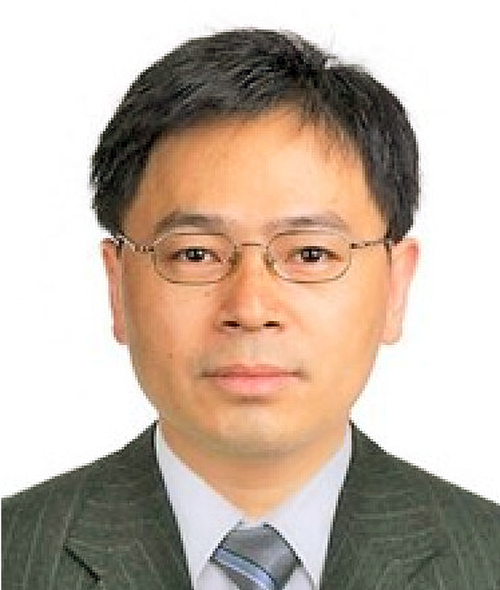
Geological, Environmental, Earth & Space Sciences
China
LI Fengting is a Professor of Tongji University and the Director for the Key Laboratory of Cities’ Mitigation and Adaptation to Climate Change in Shanghai, China Meteorological Administration (CMACC).
His research mainly focuses on climate change, water resources management, and carbon neutralization technology including , design and development of new functional nano materials, carbon utilization and low carbon water treatment , as well as mechanism of South-South and Triangular Cooperation. He has published over 400 papers on peer-review journals and he was granted with more than 90 patents from China and globally. He has designed numerous water treatment products which are widely used in the treatment of drinking water, domestic wastewater and industrial wastewater in China as well as countries in Asia-Pacific and Africa.
Li was the lead expert of the UNEP-China-Africa Cooperation Programme from 2008-2015, a flagship South-South Partnership coordinated by UNEP and funded by the Ministry of Science and Technology of China, while his research team focused on water resources management and water treatment in Africa with specific projects on: 1) wastewater treatment of communities in Africa; and 2) the development, application and demonstration of water resources utilization technology.
Li obtained his bachelor’s degree from Beijing Institute of Technology, and master’s degree from Shandong University. In 1997, Li obtained his Ph.D from Nanjing University, China. He was conferred the Special Contribution Award for South-South Cooperation by the United Nations in 2013.
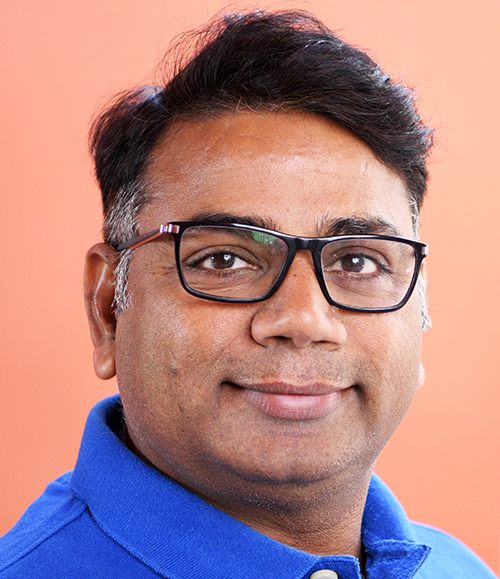
Agricultural & Nutritional Sciences
India
Prof. Rajeev Varshney, an agricultural scientist specializing in genomics, crop breeding, seeds system and capacity building, is currently serving ICRISAT as a Research Program Director- Accelerated Crop Improvement and Murdoch University (Australia) as International Chair in Agriculture & Food Security.
Prof. Varshney is a globally recognized leader for his work on genome sequencing, genomics-assisted breeding, seed system and capacity building in developing countries in sub-Saharan Africa and Asia. He has made centrally important contributions towards improving food and nutrition security in India and several countries in Africa and Asia by assembling genomes of ten major “orphan” tropical crops and other key genomic resources in pigeonpea, chickpea, groundnut and pearl millet. He has developed and integrated genomic technologies in crop improvement programs that have already delivered 11 superior crop varieties to some of the world’s poorest farmers.
Prof. Varshney, a highly prolific author and Highly Cited Researcher for 8 consecutive years (2014-2021) in a row has published >500 papers in high impact factor journals including 19 papers in various Nature journals. Based on his publications, he has h-Index of 108 with >47,000 citations. He is the youngest agricultural/plant scientist and 4th Indian to achieve an h-index of >100 as per Google Scholar. He is editor of 16 books from Springer, CRC Publishers, etc. He is an elected fellow to about 10 science and agriculture academies/ societies in India, Germany, USA, etc. and recipient of several noted awards including the most coveted science award, Shanti Swarup Bhatnagar Prize, and the most prestigious agricultural science award, Rafi Ahmed Kidwai Award from Government of India. Recently ICRISAT won the 2021- Africa Food Prize for the outputs and impact of Tropical Legume projects, led by Prof Varshney as Principal Investigator for 7 years, in 13 countries in Africa and 2 countries in Asia.
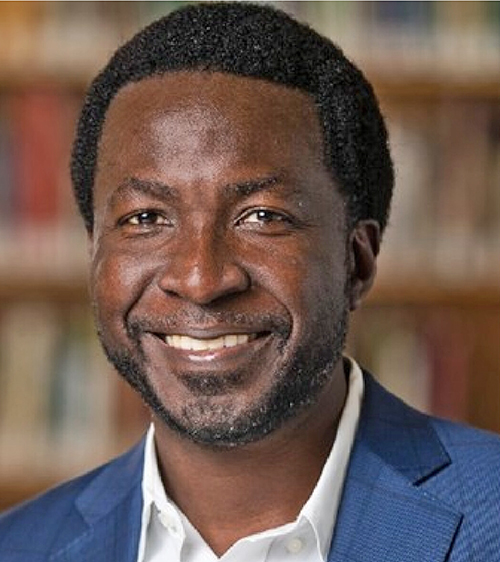
Physical Sciences
United States
Kimani C. Toussaint, Jr., Ph.D. is a Professor and Senior Associate Dean in the School of Engineering at Brown University. Dr. Toussaint directs the laboratory for Photonics Research of Bio/nano Environments (PROBE Lab), an interdisciplinary research group which focuses on both developing nonlinear optical imaging techniques for quantitative assessment of biological tissues, and novel methods for harnessing plasmonic nanostructures for light-driven control of matter. He is a recipient several awards and honors including a 2010 NSF CAREER Award, the 2014-2015 Dr. Martin Luther King, Jr. Visiting Associate Professor at MIT, the 2015 Illinois Dean’s Award for Excellence in Research, the 2017 Illinois Everitt Award for Teaching Excellence, and the 2019 Distinguished Promotion Award. Dr. Toussaint is also a Fellow of the OSA, SPIE, and AIMBE, as well as a Senior Member in the IEEE. In addition, he is a member of the Board of Reviewing Editors for Science, and a Guest Editor for PNAS. Dr. Toussaint has previously served as the PI and inaugural Director of the US National Science Foundation Nanomanufacturing Node at the University of Illinois at Urbana-Champaign from 2017-2019.
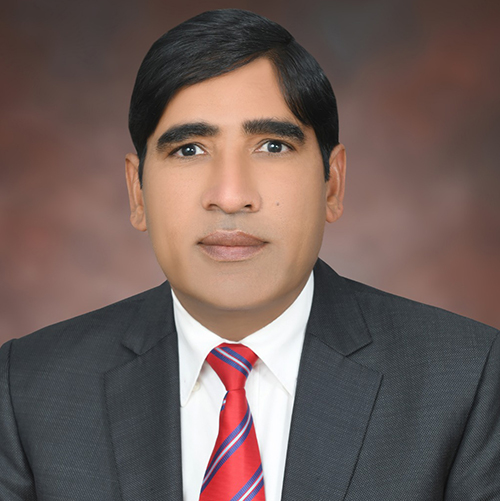
Mathematical Sciences
Pakistan
Tasawar Hayat is working as a Professor of Mathematics at Quaid-i-Azam University (QAU), Islamabad, Pakistan. He received the M.Sc and (M.Phil, PhD) degrees in Mathematics (Applied Mathematics) in 1992 and (1994, 1999) respectively from the QAU. His fields of interest include fluid mechanics, mathematical modeling, simulation, biomechanics, wave mechanics, nonlinear differential and integral systems, fractional calculus, complex network systems, nanomaterials etc. He has already supervised more than one hundred (PhD and M. Phil) students. He is Fellow of the Pakistan Academy of Sciences, Third World Academy of Sciences (TWAS), and Islamic World Academy of Sciences (IWAS). He is recipient of several international and national awards and honors. These include Khwarizmi International Award, ISESCO International Award, ISESCO International Prize, COMSTECH International Award, TWAS Young Scientist Prize, Obada International Prize, Abdus Salam Prize, Alexander Von Humboldt Fellowship, several gold medals and many others. He is principal investigator/co-investigator of seventeen research projects. He participated as an invited speaker in many national and international workshops and conferences.
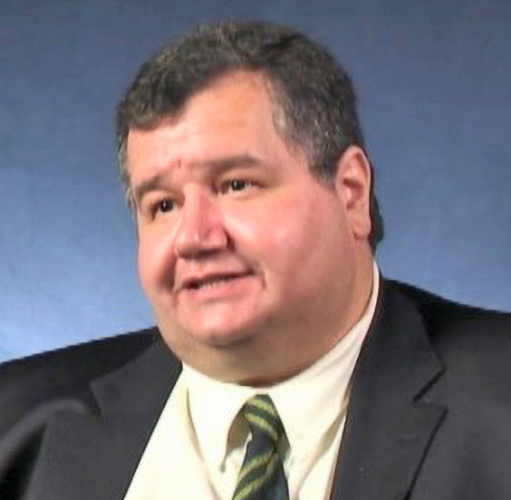
Agricultural & Nutritional Sciences
Sweden
Rodomiro Ortiz (Lima, Perú; 1958) is Faculty Professor and Chair of Genetics and Plant Breeding at the Swedish University of Agricultural Sciences (SLU), and SLU Breeding Network Chairman. He holds a PhD in Plant Breeding & Genetics from the University of Wisconsin-Madison, and worked as young researcher at UNALM (Perú) and Rutgers University, was scientist and director of various CGIAR Consortium Centers, and held a Nordic professorship on plant genetic resources at the then Royal Veterinary and Agricultural University. Professor Ortiz has written > 800 reports, of which about 50% are journal articles or edited book chapters with h-index of 70 and cited by 19070 [as per Google Scholar on 2021.12.20]. The CGIAR awarded to IITA the prestigious 1994 King Baudouin Award for the multidisciplinary research of the team working in plantain and banana improvement, in which he was program leader. In 2012, Plant Breeding Reviews dedicated him its volume 36.
Professor Ortiz was the principal investigator of SLU/ICARDA–led research development partnership project Adapting durum wheat varieties to the Senegal Basin for food security that won the 2017 Olam Prize for Innovation in Food Security. He was given the Bertebos Prize 2022 for mastering the use of new molecular scientific methods to be a driving force in the breeding of crops of great importance for food supply in Africa, America and Europe. Professor Ortiz was member of CGIAR Independent Science and Partnership Council (2015–2019) and of the Commission on Sustainable Agriculture Intensification (CoSAI, 2020–2021), international fellow of the Royal Swedish Academy of Agriculture and Forestry (KSLA) since 2019, member of the Royal Physiographic Society at Lund (KFS) from 2021 onwards, and fellow of the African Academy of Sciences (FAAS) since 2021.
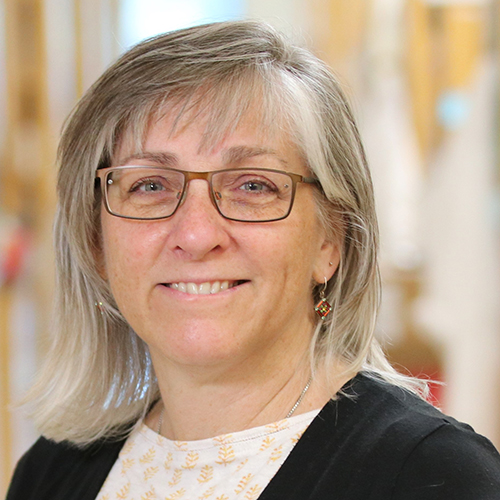
Medical & Health Sciences
United States
Ann Moormann earned her PhD in Epidemiologic Sciences and MPH in Hospital & Molecular Epidemiology at the University of Michigan, Ann Arbor. She then trained at the Center for Global Health and Diseases at Case Western Reserve University in Cleveland, Ohio. She has been a Visiting Scientist at the Center for Global Health Research, Kenya Medical Research Institute in Kisumu since 1999. She is currently a Professor of Medicine in the Division of Infectious Diseases and Immunology, Department of Medicine at the University of Massachusetts Chan Medical School in Worcester. Her research focuses on investigating the development and maintenance of protective immunity to infectious diseases, primarily Plasmodium falciparum malaria and Epstein Barr Virus (EBV); and understanding the pathogenesis of endemic Burkitt lymphoma (BL), a common pediatric cancer in sub-Sharan Africa that has been associated with these two infections.
With funding from the US National Institutes of Health, she started the Kenya Burkitt Lymphoma Project in 2002. She was awarded a Denis Burkitt Fellowship from the Royal Society of Tropical Medicine in 2008. Her seminal studies have significantly increased our understanding of how persistent malaria infections during childhood shape T cell immunity and Natural Killer cell functional profiles that control viral loads. Her research is also characterizing the role of EBV and viral variants in eBL tumorigenesis. Ongoing studies, in collaboration with the Academic Model Providing Access to Healthcare (AMPATH) Oncology programs in Eldoret, Kenya aim to discover and implement new therapeutic targets that will improve outcomes for children diagnosed with EBV-associated BL in Africa. Dr. Moormann continues to mentor aspiring scientists from around the world; values diversity, equity, and inclusion; and is currently the Chair of the Young Investigator Award Committee for the American Society of Tropical Medicine and Hygiene.
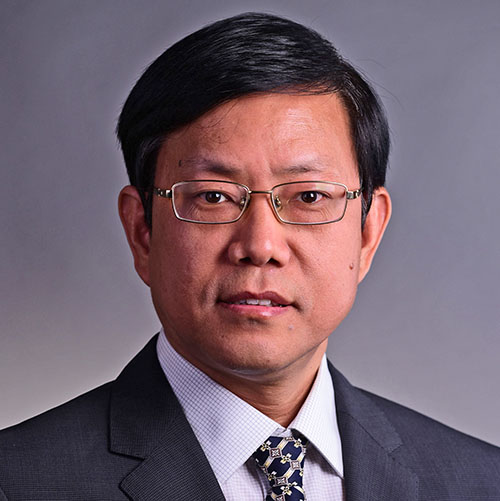
Agricultural & Nutritional Sciences
China
Professor Jianbo Shen, an expert in plant nutrition and rhizosphere science, has been engaged in studies on plant-soil interactions and interventions that are aimed at enhancing resource-use efficiency and food security, particularly focusing on root/rhizosphere management for improving nutrient-use efficiency and crop productivity and enhancing environmental resilience. He has coupled the techniques of plant and soil sciences to augment understanding of biological and chemical processes in the rhizosphere, and he has developed effective approaches of rhizosphere management for improving the nutrient-use efficiency and crop yield while reducing environmental impact in cropping systems. Professor Shen has made contributions to the scientific innovation and technology transfer of rhizosphere nutrition and management. He found that root/rhizosphere efficiency can be maximized by creating an appropriate root-zone nutrient supply, stimulating root proliferation and rhizosphere acidification, and strengthening rhizosphere interactions.
He is also engaged in research work on engineering plant-soil-microbe interactions for sustainable intensification and towards green development of agriculture. He proposes the tradeoffs among root morphology, root exudation and mycorrhizal symbioses for phosphorus-acquisition strategies of diverse crop species, linking root exudation to the belowground economic traits for efficient resource acquisition. His area of research is very important from both scientific and agricultural points of view. He has supervised many talented researchers in plant nutrition. In recognition of his scholarly contribution to knowledge innovation, he won the National Natural Science Award, and National Science and Technology Progress Award in China. He obtained the National Outstanding Youth Fund of Natural Science Foundation of China. He published more than 130 peer-reviewed papers (H-index: 44, Scopus), and was repeatedly selected as a “Global highly cited researcher" during 2019-2021. He has promoted China-Africa collaborations in training professional graduate students and sustainable agriculture.
Biosciences
Pakistan
Dr. Le Kang is a CAS Distinguished Professor in Institute of Zoology, Chinese Academy of Sciences (CAS). Dr. Kang obtained his Ph. D. in ecology from Chinese Academy of Sciences in 1990. He pioneers the researches on ecological genomics and adaptation of insects. He reveals the molecular mechanisms for phenotypic plasticity and adaptation of locusts at both genetic and epigenetic levels using interdisciplinary methods. He has made remarkable contributions in locust biology and his achievement has reshaped the scientific outlooks on locust biology, and provided crucial cues to develop novel control strategies against the swarming insects.
His representative papers are published in Nature, Science, PNAS etc. He was repeatedly invited to write review articles by ARE (2009, 2014) and PTRS (2007, 2019). His achievements include four aspects: (1) Discovering the functions of 4VA as aggregation pheromone and PAN as olfactory aposematic signal and toxin precursor in locust swarm and group defense. Uncovering the genetic and epigenetic mechanism for locust phase changes in behaviour, body coloration, flight, metabolism, reproduction, and innate immunity; (2) Decoding the huge genome and population mt-genomes of locusts for deciphering the genome basis of swarm, feeding habits and migration, as well as revealing origin, spread, and subspecies differentiation of the migratory locust. Elucidating the adaptation of locust populations along latitude gradients through transposable elements mediated diapause traits, and the hypoxia adaptation mediated by the insulin signaling pathway; (3) Clarifying the effects of climate warming, precipitation variation, and livestock overgrazing on locust outbreaks; and (4) Genetically modifying the fungal pathogens to promote virulence to locusts and other insects for novel biocontrol agents of locusts and other pests. He has been coordinating collaborative work between China and the rest of the world and the international organizations (including IUBS and FAO) for biological science and insect pest problems.
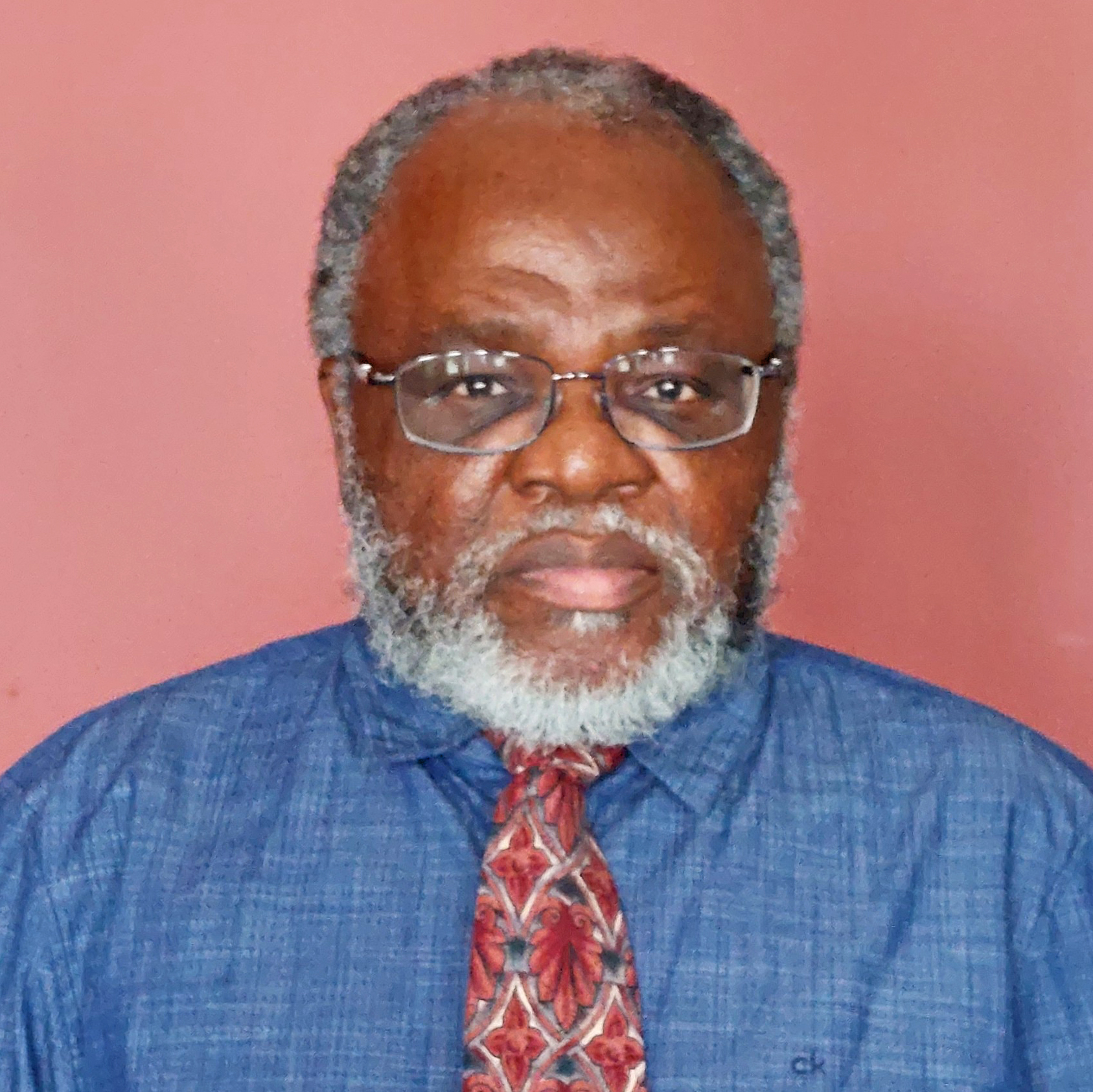
Agricultural & Nutritional Sciences
Canada
Dr Lupwayi, a soil microbiologist, started his career as an academic at the University of Malawi. He then worked as a Research Associate at the International Livestock Research Institute in Ethiopia before moving to Canada, where he is a Research Scientist with Agriculture and Agri-Food Canada. He has published 144 papers in peer-reviewed scientific journals. His work has been consumed heavily by peers, as indicated by his H-index of 32 (Scopus) or 42 (Google Scholar). He has served on the Editorial Boards of the Canadian Journal of Soil Science, where he rose to become Editor-in-Chief, Agronomy Journal, and Agriculture Ecosystems & Environment. Besides reviewing manuscripts for many international journals, he has reviewed research proposals for national research councils of Canada, France and the Netherlands. He is a Fellow of the Canadian Society of Soil Science.
Dr. Lupwayi has used his expertise to contribute to African science. At the University of Malawi, he supervised undergraduate student projects and mentored an MSc student. From his work in Ethiopia, he published many papers on rock phosphate fertilizers (important phosphorus sources for tropical crops which have difficulty accessing soil phosphorus due to its fixation by the highly weathered tropical soils), biological nitrogen fixation, and nutrient release from agroforestry shrubs and cattle manure. He also authored a manual on biological nitrogen fixation techniques, which was distributed to Eastern and Southern African scientists working on Phaseolus beans. While in Canada, he has reviewed manuscripts for the African Journal of Agricultural Research and African Journal of Plant Science. He has also presented papers at conferences in Africa: the International Symposium on Plant-Soil Interactions at Low pH (South Africa, 2001), the African Association for Biological Nitrogen Fixation Conference (Cameroon, 2009), the International Nitrogen Initiative Conference (Uganda, 2013), and the African Crop Science Conference (South Africa, 2018).
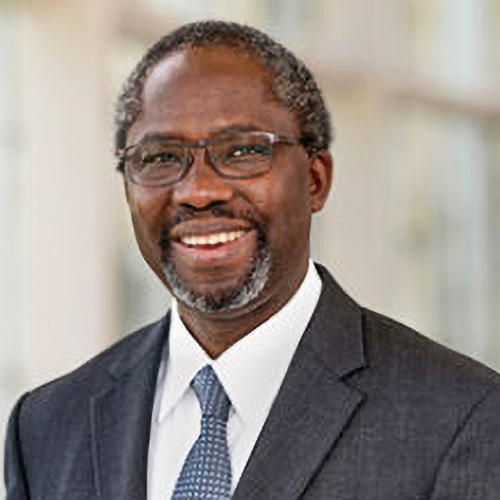
Agricultural & Nutritional Sciences
United States
Professor Henry Fadamiro is a Professor of Entomology at Texas A&M University, College Station, Texas. He is the Chief Scientific Officer & Associate Director for Texas A&M AgriLife Research. He also serves as Associate Dean for College of Agriculture and Life Sciences. Prior to joining Texas A&M University, Professor Fadamiro was on the faculty at Auburn University for 18 years and served in various leadership roles including as Associate Dean for Research for College of Agriculture and Associate Director of Alabama Agricultural Experiment, Assistant Dean & Director of Global Programs, and Integrated Pest Management Coordinator for Alabama. Prof. Fadamiro received the Rhodes Scholarship to earn his Ph.D. in Entomology and Pest Management from the University of Oxford in England in 1995. Prior to that, he earned his Bachelor’s and Master’s degrees from the Federal University of Technology in Akure, Nigeria.
Previously, Prof. Fadamiro had served as a researcher at various institutions including International Institute of Tropical Agriculture, Ibadan, Nigeria, Iowa State University, University of Minnesota, and Minnesota Department of Agriculture. Working with various teams, Prof. Fadamiro has received more than $20 million in research funding and published more than 125 scientific articles. He has trained over 30 postgraduate students and postdoctoral scholars including 20 Africans. Prof. Fadamiro has made significant contributions to the advancement of science and human capacity development in Africa and USA. His groundbreaking research in chemical and physiological mechanisms of plant-insect and tritrophic interactions has impacted pest management programs globally. He has worked to establish academic partnerships and research collaborations with several institutions in Africa. Prof. Fadamiro’s academic accomplishments have been recognized globally with various awards. He was named fellow of the Royal Entomological Society in 2010. In 2011, he received the Award for Excellence in IPM from the Entomological Society of America – Southeastern Branch.

Physical Sciences
United Kingdom
Mohamed Henini obtained his first degree at the University of Oran, Algeria. He went to Nottingham University, UK, and was awarded the PhD degree in 1984.
Henini has been studying various aspects of low dimensional semiconductor structures and devices grown by Molecular Beam Epitaxy (MBE) for over 25 years. During this time a significant contribution to the understanding of the physics underlying the operation of such structures and devices has been made. The research work has been recognized nationally and internationally. He has an established reputation and as a result collaborate/collaborated with many scientists both in the UK and overseas as evidenced by his publications.
He has authored and co-authored over 970 papers in international journals and conference proceedings. Some measure of the influence and impact of Prof Henini’s work may be drawn from citation statistics [Institute for Scientific Information (ISI)]. He has a h-index of 53 (ISI Web of Science). He edited/co-edited six books in the field of semiconductors and nanoscience which were published by Elsevier and serves on the Editorial Board of several scientific journals. He is Editor of Journal of Alloys and Compounds (Elsevier).
He is member of several National and International Professional Organisations including UNESCO-Africa Chair in Nanosciences & Nanotechnology, Nanosciences African-Network Initiative (NANOAFNET), and African Network for Solar Energy (ANSOLE).
He has a strong track record in organising conferences and workshops, and he is the founder of two international conferences namely, Low Dimensional Structures and Devices (LDSD) and Epitaxial Semiconductors on Patterned Substrates and Novel Index Surfaces (ESPS-NIS).
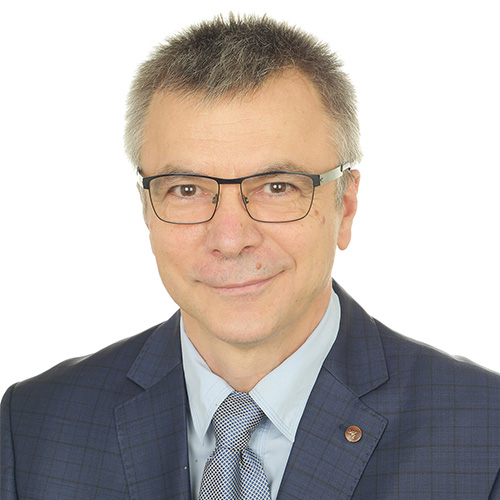
Mathematical Sciences
Romania
Dumitru Baleanu is a Professor at the Institute of Space Sciences, Magurele-Bucharest, Romania and a visiting staff member at the Department of Mathematics,Cankaya University, Ankara, Turkey. Dumitru got his PhD from the Institute of Atomic Physics in 1996. His fields of interest include the fractional dynamics and its applications, fractional differential equations and their applications, discrete mathematics, image processing, bio-informatics, mathematical biology, mathematical physics, soliton theory, Lie symmetry, dynamic systems on time scales, computational complexity, the wavelet method and its applications,
Dumitru is a pioneer of the fractional variational principles and their applications in control theory. He is one of the co-authors of the seminal paper entitled Anomalous diffusion expressed through fractional order differential operators in the Bloch-Torrey equation, published in Journal of Magnetic Resonance (2008),which plays now a fundamental role within diffusion weighted MRI. Dumitru had an important role in developing the non-singular operators with Mittag-Leffler kernels and their applications in real world phenomena.
He is a co-author of 15 books and he published more than 1000 papers indexed in ISI journals. His H index is 61 and he is a highly cited researcher in Mathematics and Engineering in 2019.
He organized several prestigious international conferences in various countries. He won the ICFDA2018 Award: Innovation in Fractional Calculus and 2019- Obada Prize.
Dumitru is a co-author of a Chinese Patent No: ZL 2014 1 0033835.7 regarding chaotic maps and its important role in information encryption.
He is the Editor in Chief of Progress in Fractional Differentiation and Applications and he is a Co-editor in Chief of Discontinuity, Nonlinearity and Complexity.
Dumitru is an editorial board member of Applied Numerical Analysis, Mathematics, Symmetry, Mathematical Methods in Applied Sciences, Fractional Calculus and Applied Analysis, Alexandria Journal of Engineering, Open Physics, Advances in Difference Equations, Journal of Computational and Nonlinear Dynamics.
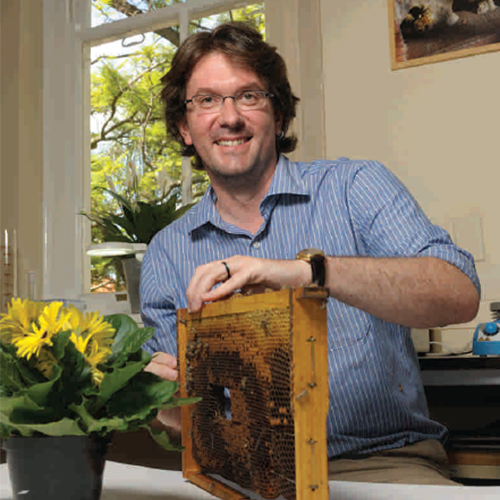
Biosciences
Germany
Professor Pirk heads the Social Insects Research Group in the Department of Zoology and Entomology at the University of Pretoria. Born in Berlin, Germany, he studied Biology and Mathematics at the Technical University Berlin before starting his PhD at Rhodes University. His research focuses on the behavioural and chemical ecology of social insects, in particular honeybees. He is involved in international networks with an interest in pollinator and honeybee health; collaborating with colleagues in Europe, Asia, America and Africa. Christian is Vice-president of the Entomological society of Southern Africa, serves on the Management committee of the international COLOSS network and is a council member of International Society of Chemical Ecology. He has published over 130 peer-reviewed articles, 5 book chapters and a monograph on honeybees. Christian has reviewed for over 40 peer review journals and organisations such as Deutsche Forschungsgesellschaft (German Research Foundation), EU-COST Association and the South African National Research Foundation. He provides an excellent research base for students interested in behaviour, chemical ecology, mathematical modelling, nutrition and social insects and has supervised more than 40 postgraduates. To date, 19 BSc (Hons), 17 MSc and 13 PhD students have completed their degrees under his supervision. All BSc. (Hons) students continued to undertake further postgraduate studies either at the University of Pretoria or at another tertiary institution and have published or will publish their results in international peer-reviewed journals. Christian currently involved in the supervision of 4 MSc and 10 PhD students, five of them are linked to the ARPPIS (African Regional Postgraduate Programme in Insect Science) at ICIPE, Kenya, and mentoring two Post-Doctoral fellows. Christian serves on editorial boards for the Journal of Insect Behaviour and Scientific Reports and is a member of the Academy of Science of South Africa.
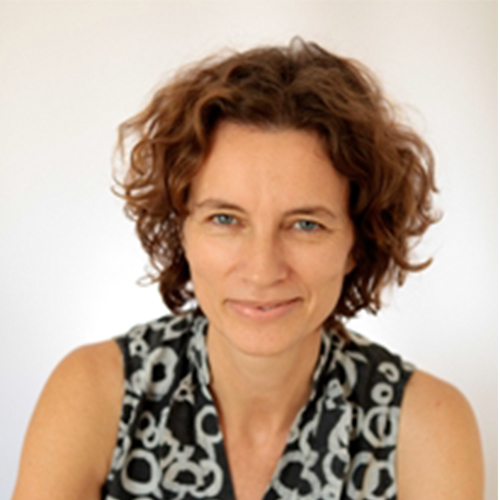
Catherine Molyneux
United Kingdom
|Elected: 2019
Cultural Sciences, Humanities & Social Sciences
View Profile
Cultural Sciences, Humanities & Social Sciences
United Kingdom
Sassy is a Professor in Global Health at the University of Oxford, and a senior researcher at the KEMRI-Wellcome Trust Research Programme in Kenya. She is a multidisciplinary researcher with a background in human geography and behavioural studies. Her current main research areas span health policy and systems research (system governance, financing, and responsiveness to patients and publics) and empirical ethics, including the everyday ethics of frontline health provision and of conducting studies in resource poor settings. Sassy sits in leadership positions in several international networks, including the Global Health Bioethics Network, the Ethics Thematic Working Group in Health Systems Global, and – until recently – RINGS, a partnership to foster gender and ethics analysis in health systems research and practice. Sassy lived in Kenya for 26 years, returning to the UK in 2020.
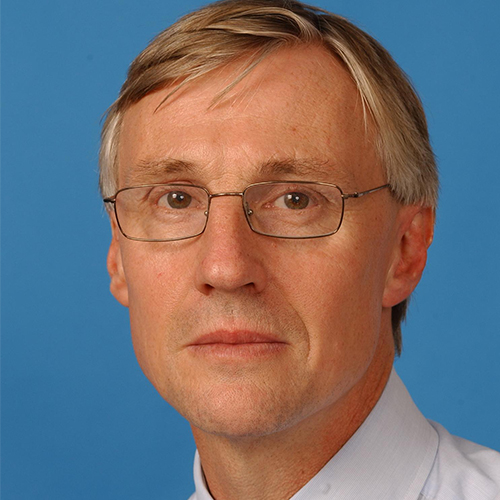
Medical & Health Sciences
United Kingdom
Professor of Infectious Disease Epidemiology, University of Edinburgh
Mark Woolhouse is Professor of Infectious Disease Epidemiology at the University of Edinburgh. He studied biology and ecology at the Universities of Oxford and York and Queen’s in Canada, then held Research Fellowships at the University of Zimbabwe, Imperial College London and Oxford, before moving to Edinburgh in 1997. His research interests concern the population dynamics of pathogens, especially those associated with antimicrobial resistance (AMR) and emerging infectious diseases, applying ecological and evolutionary approaches to combat threats to both human and animal health. He is an expert on the epidemiology and transmission of AMR between livestock and humans, advocating a One Health approach to reducing the burden of resistance. He has written a number of high-profile articles on global policy on AMR, is a frequent invited speaker to audiences of academics, clinicians and the general public and makes regular contributions in the press and media. He leads on AMR for Edinburgh Infectious Diseases – a grouping of over 800 scientists. He advises both national and international agencies (including DEFRA, FSA, WHO, US Institute of Medicine) and was awarded an OBE in 2002. He is a Fellow of the Royal Society of Edinburgh and of the Academy of Medical Sciences. He is also a member of the Scientific Pandemic Influenza Group on Modelling (SPI-M) and Scottish Covid-19 Advisory Group.
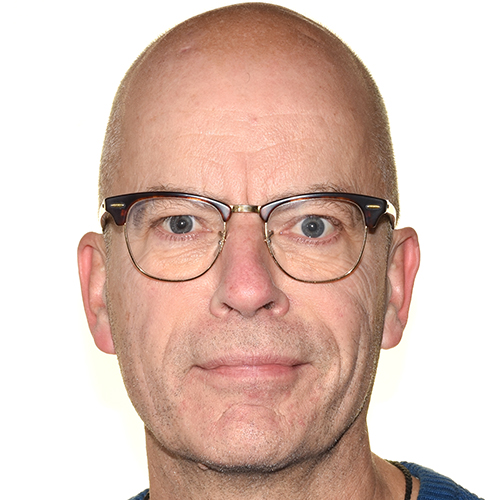
Medical & Health Sciences
Denmark
Lars is a Professor at the Department of Immunology and Microbiology, University of Copenhagen (since 2006). He has conducted research on the immunology and pathogenesis of Plasmodium falciparum malaria since the late 1980s. Lars’ research is mostly based on field studies in Africa – mainly in Sudan and Ghana. In 1991, he co-founded the Centre for Medical Parasitology (CMP) in Copenhagen, which has grown since to becoming a leading hub of European malaria research. For more than 20 years, his research has been focussed mainly on the role of clonally variant parasite antigens, in particular PfEMP1, in malaria pathogenesis and as targets of naturally acquired protective immunity to the disease. Research capacity building and collaboration with colleagues in Africa has been an integral part of his research activities throughout. Lars is an international faculty member at the West-African Centre for Cell Biology of Infectious Pathogens (WACCBIP), University of Ghana. His laboratory participates in the Legacy project of the Federation of African Immunological Societies (FAIS). He is an elected Fellow of the American Society for Tropical Medicine and Hygiene (FASTMH, Class of 2013).
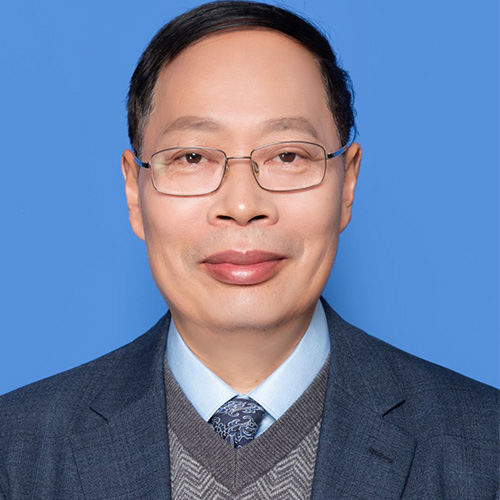
Mathematical Sciences
China
Jinde Cao received the B.S. degree from Anhui Normal University, Wuhu, China, the M.S. degree from Yunnan University, Kunming, China, and the Ph.D. degree from Sichuan University, Chengdu, China, all in mathematics/applied mathematics, in 1986, 1989, and 1998, respectively.
He is an Endowed Chair Professor, the Dean of the School of Mathematics, the Director of the Jiangsu Provincial Key Laboratory of Networked Collective Intelligence of China and the Director of the Research Center for Complex Systems and Network Sciences at Southeast University. Prof. Cao was a recipient of the National Innovation Award of China, Obada Prize and the Highly Cited Researcher Award in Engineering, Computer Science, and Mathematics by Thomson Reuters/Clarivate Analytics. He is elected as a fellow of IEEE, a member of the Academy of Europe, a member of the European Academy of Sciences and Arts, a foreign member of Russian Academy of Natural Sciences, a fellow of Pakistan Academy of Sciences, an IASCYS academician, and a full member of Sigma Xi.
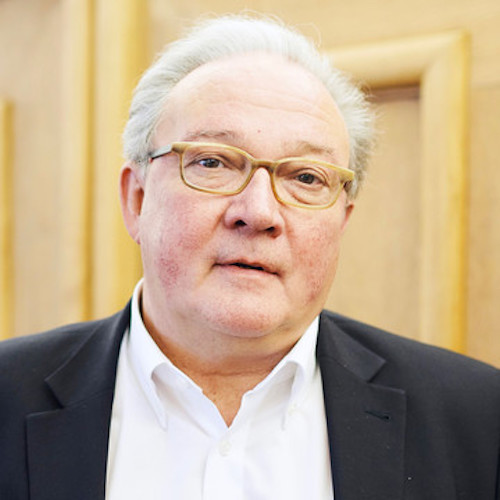
Medical & Health Sciences
Switzerland
Professor Marcel Tanner was Director of the Swiss Tropical and Public Health Institute from 1997 to 2015 and is now President of the Swiss Academy of Sciences. He holds a PhD in medical biology from the University of Basel and a MPH from the University of London. Lived and worked in Africa and Asia and ha s published extensively in many fields of health research (>650 original papers) and has received global recognition for his expertise in the field of infectious diseases research and control. He was co-investigator and coordinator of the first African malaria vaccine trial in 1992 and participated as co-principal investigator in several major intervention trials on malaria and schistosomiasis. He developed a Swiss field laboratory to what is now the Ifakara Health Institute in Tanzania from 1981-1985 and when back in Europe as programme director 1987-1997.
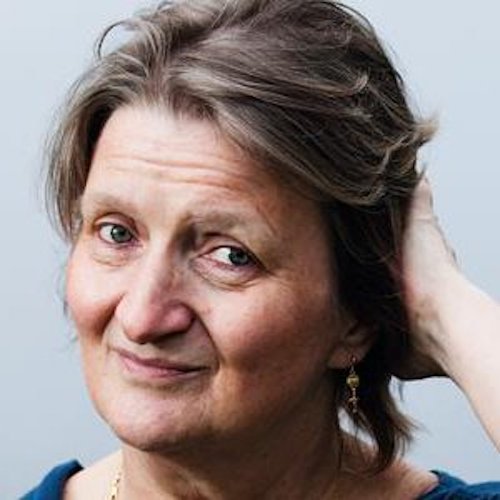
Medical & Health Sciences
Belgium
Education
PhD, Ghent University, Belgium, 1993
MPH, Free University Brussels, Belgium, 1985
OB/GYN, Board Certification, Ministry of Public Health, Belgium, 1983
DTM&H, Institute of Tropical Medicine, Antwerp, 1979
MD, State University Ghent, Belgium, 1978
Training
Management Development Programme, UZ Gent,(2009)
Certificate of Tropical Medicine, ITM, Antwerp, Belgium, 1979
Certificate of Medicine cum Laude, Ghent University, Belgium, 1978
Classics, O-L-Vr Ten Doorn, Eeklo, Belgium, 1970
Current areas of teaching
Global health
Women's health and rights
Reproductive, maternal, newborn and adolescent health
Implementation science and research
Research interests
Prof Temmerman has a strong academic and scientific background with over 500 publications and books in the area of women’s health, with a Hirsch index of 75. She has supervised many PhD students in Europe, Africa, Latin-America and China and received several awards and honours for her research and advocacy work
Experience
Full Professor, Chair Department of Obstetrics and Gynaecology and Director Women’s Health, Faculty of Heath Sciences, Aga Khan University in East Africa,2015 to date
Full Professor OB/GYN, Ghent University, Belgium, 1995-current;(leave of absence since 2012)
Head of Department of Obstetrics and Gynaecology, Ghent University Hospital, Belgium,(2008-2012)
Director, International Centre for Reproductive Health, Ghent University, Belgium,1994-2012
Senator, Belgian Parliament (2007-2012)
Member of UN/WHO Independent Expert Review Group on Information and Accountability for Women’s and Children’s Health (2010-2012)
Professional associations
Member of KOGS (Kenya Obstetrical and Gynaecological Society)
Associate member of the American College of Obstetricians and Gynecologists
Commissioner in the Guttmacher-Lancet Commission on Sexual and Reproductive Health in the post-2015 world
Senior Fellow in the Institute for Global Health Diplomacy in Geneva
Senior WHO Advisor in Women, Adolescent and Child Health
Member of the EDCTP Scientific Advisory Committee
Commissioner in the Lancet Commission on Adolescent Health and Wellbeing
Member Scientific Advisory Committee, Chair of the HIV working Group of The European & Developing Countries Clinical Trials Partnership (EDCTP)
Member of the Expert Group on Contraception, European Parliamentary Forum
Member of the Advisory Board of Women Deliver WD2019
Member of the UNFPA Global Advisory Council
Member of the Guttmacher-Lancet Commission on Sexual and Reproductive Health and Rights in the post-2015 world
Member of the Lancet Standing Commission on Adolescent Health
Senior Fellow in the Institute for Global Health Diplomacy in Geneva
UNESCO-AKU Chair on Youth Leadership in Science, Health, Gender and Education at the Aga Khan University
Member of the Expert Advisory Group (EAG), G-FINDER reproductive health report, PolicyCures
Member of KOGS (Kenya OBS/GYN Society)
Member of the Scientific Advisory Committee of KARSCOM, Kenya AIDS Research Coordination Mechanism, Ministry of Health, Kenya, and member of the Maisha
Maarifa HIV/SRH Research Hub of the Kenyan National AIDS Control Council (NACC)
Member of KMWA, Kenya Medical Women Association
Member of the Advisory Committee of the First Lady’s Beyond Zero Advocacy Platform, Kenya
Member of the Kenya National Domestication of the Global AA-HA! Guidance Committee on Adolescent Health
Member Research Committee, Health Department, Kilifi County Government
Member of the Steering Committee Medical School, Technical University of Mombasa
Chair of the Regional Maternal-Newborn Steering Committee, AKU-AKHS
Chair of the AKU Ethics Review Board
Board Member International Centre for Reproductive Health (ICRH)- Kenya
Awards and honours
The IUSTI annual Prestigious Lecture award 2018 from The International Union against Sexually Transmitted Infections (IUSTI). Plenary address at the organisation’s annual conference in Dublin, entitled Sexual and Reproductive Health and Rights. Dublin, June 2018
KMWA Award (Kenya Medical Women Association Award), in recognition of outstanding and consistent work on women sexual and reproductive health and gender based violence. Nairobi, November 2018
Fellow of the African Academy of Sciences, Pretoria, December 2018
UNESCO Chair on Youth Leadership in Science, Health, Gender and Education at the Aga Khan University, September 2018
Concurrent Professorship, Fudan University, May 2017
EDCTP Award for Outstanding Female Scientist, November 2016
Marie Popelin Award for Women’s Rights, a 5-yearly award established by the National Women’s Council Belgium, January 2016
Top 100 Women Leaders in Global Health, The Graduate Institute/Global Health Program, Switzerland, 2015
Honorary Professorship, National Institute Family Planning Research China, Beijing, October 2015
FIGO Distinguished Merit Award, Vancouver, September 2015
Gold Medal of the Royal Flemish Academy of Belgium for Sciences and Arts, December 2014
Award for Free-thinking and Humanism by the Humanism Association Belgium, June 2013
Honorary Membership Award of the Club of Rome by H.R.H Prince Philippe of Belgium, June 2013
Association of European Parliamentarians with Africa (AWEPA) - ‘Peace Women Award 2011’, Brussels, 12 December 2011
Honorary Doctorate, Faculty of Community and Health Sciences, School of Public Health, University of the Western Cape, Cape Town, 21 September 2011
Honorary Doctorate, Faculty of Medicine, Vrije Universiteit Brussel, Brussels, 25 May 2011
BMJ Lifetime Achievement Award 2010, London, March 2010
FIGO Award in recognition of Women Obstetricians-Gynaecologists, Cape Town, October 2009

Medical & Health Sciences
United Kingdom
Bob’s left the UK in 1984 to work in The Gambia on the first clinical trials of insecticide treated nets (ITN). In 1989, he moved to Kenya where he established the framework to undertake linked community mortality and hospital admission surveillance at Kilifi, which included one of four large-scale, community-randomized mortality trials of ITN in Africa. This platform of multi-disciplinary research formed the basis of future long-term support to a programme that has grown from a few scientists working in a prefabricated building, to 100’s of Kenyan scientists with independent funding driving a broad range of research in Kenya and beyond.
Bob’s research has focused on trying to understand the effects of malaria parasite exposure on the clinical epidemiology of malaria, new methods to define the mortality, morbidity and consequential burdens posed by this parasite and the linked geography and history of malaria across the African continent. In 1996, he initiated the Mapping Malaria Risk in Africa (MARA) project with colleagues in South Africa, which served as the model for a global initiative founded by Bob in 2005 in Nairobi, known as the Malaria Atlas Project (MAP).
Since 2010, he has led a science-to-policy initiative, funded by DFID, UK, to ensure that there is the best possible use of epidemiological data to design malaria control programmes in 22 African countries. In 2015, this work extended to support countries in the Arabian Peninsula as a collaboration with WHO’s EMR office in Cairo: focusing on countries in conflict, entering phases of malaria elimination or aiming to prevent malaria re-introduction.
Bob is the longest serving Oxford scientist at the Kenyan Programme, he has been funded by the Wellcome Trust, UK, since 1992 under three Senior Fellowships and three Principal Fellowships. His scientific interests continue to be focused on the complex epidemiology of malaria parasite exposure, disease outcomes and intervention impact across Africa, the promotion of the science of malaria risk mapping to optimize a higher impact future of existing malaria interventions in direct collaboration with national governments in the WHO Africa and Eastern Mediterranean regions, and mentoring early and mid-career scientists from the region.
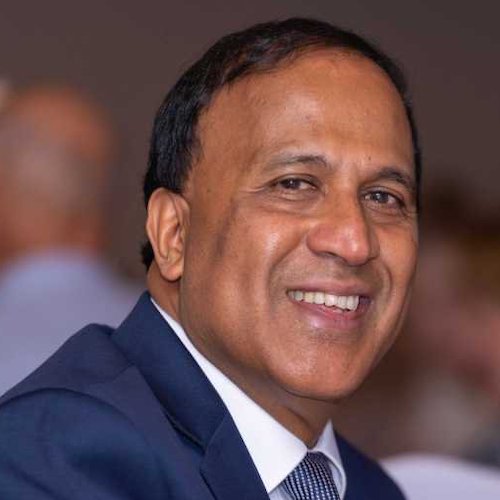
Agricultural & Nutritional Sciences
Australia
Professor Kadambot H.M. Siddique AM, CitWA, FTSE, FAIA, FNAAS, FISPP, FAAS
Hackett Professor of Agriculture Chair and Director The UWA Institute of Agriculture
After completion of his PhD at UWA in 1985 Professor Siddique joined the Department of Agriculture and Food, Western Australia (DAFWA) as a cereal crop physiologist and worked his way up to principal scientist and leader of DAFWA's Pulse Program. He became the Director of Centre for Legumes in Mediterranean Agriculture (CLIMA) at UWA in 2001 and remained in this position until 2006 when he was appointed to establish and lead The UWA Institute of Agriculture.
Professor Siddique is recognised internationally as a leader in crop science and agriculture.
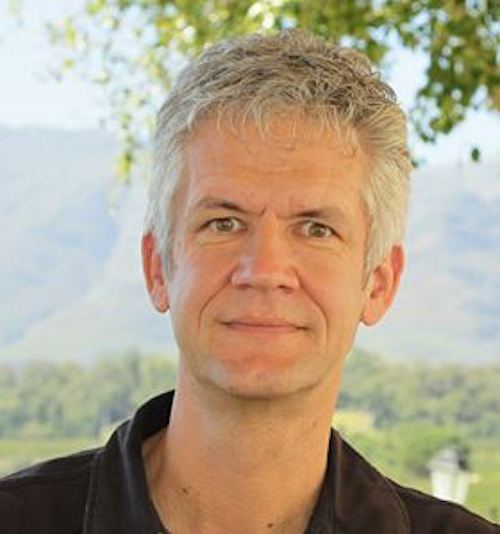
Chemical Sciences
Netherlands
Over the past 20 years, Prof Klumperman has published around 150 papers in peer-reviewed scientific journals. His current h-index is 40. In addition, he is co-inventor on more than ten patent applications. He has graduated around 60 post-graduate students (MSc and PhD). Initially, his research was strongly focused on kinetic and mechanistic aspects of radical polymerization reactions. He is considered a world leader in this field as evidenced by his A-rating from the National Research Foundation (South Africa). In recent years, his research interests have shifted towards biomedical applications of polymers, ranging from antimicrobial materials, to drug delivery systems and polymer bioconjugates. The work on antimicrobial materials and on polymer bioconjugates is currently receiving significant attention from industry. Prof. Klumperman is Editor of European Polymer Journal and Editor-in-Chief of the Transactions of the Royal Society of South Africa (RSSAf).
Recognitions: membership in national and other academies, Prizes, Awards, etc.
- SARChI Research Chair (2006, 2010, 2015)
- A-rating from the NRF (2007, 2012)
- Fellow of the RSSAf (2008)
- Gold Medal of SACI (2013)
- Distinguished Professor at Stellenbosch University (2014)
- Sasol Chemistry Innovator of the Year Award (2015)
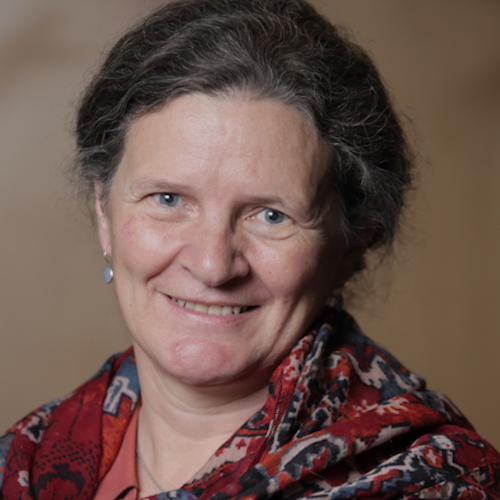
Medical & Health Sciences
United Kingdom
Alison Elliott is theme leader for Endemic, Neglected, Emerging and Re-emerging Infectious Diseases and head of the Immunomodulation and Vaccines research programme at the MRC/Uganda Virus Research Institute (UVRI) Unit. She is also director of the Makerere University – UVRI Centre of Excellence for Infection and Immunity Research and Training, and Professor of Tropical Medicine at the London School of Hygiene & Tropical Medicine. She became interested in parasitology and research in Africa as an undergraduate and this interest was encouraged further by an elective in The Gambia. After completing medical training she joined the London School of Hygiene & Tropical Medicine and, during the late ‘80s and early ‘90s, undertook studies on the interaction between tuberculosis and HIV infection in Zambia. An infectious diseases fellowship in Denver, Colorado, followed, providing an opportunity to learn about management of drug resistant tuberculosis and about laboratory immunology.
This enabled her to plan and conduct subsequent clinical-immuno-epidemiological studies. Since 1997 she has been based in Uganda at the Uganda Virus Research Institute. Current interests focus on the effects of chronic, immunomodulating infections (such as helminth infections) on immune responses to vaccines and on infectious and allergic disease incidence in children in Uganda; and on research capacity building in Africa.
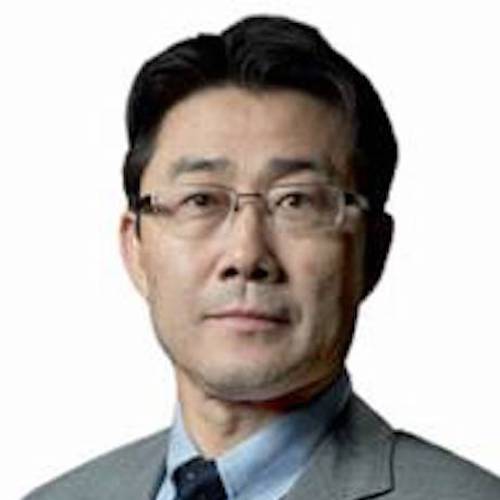
Biosciences
China
Using interdisciplinary methods, including virology, immunology and structural biology, Gao has made remarkable contributions to the study of pathogen infection (Host-pathogen interactions) and interspecies transmission (“Host jump”) mechanism, in particular, of the influenza virus and coronavirus. His work revealed the origin and interspecies transmission mechanism of important pathogens including avian influenza virus, MERS-CoV and Ebola virus, his recent contribution to Zika virus research is remarkable, inc. revealing of the Zika-induced testis damage in mice model.
He is a leading figure for the control of infectious diseases in China and a world advocate voice of global public health strategy. His heroic work in leading China Mobile Laboratory Testing Team to fight against Ebola in Sierra Leone in 2014 was highly appreciated worldwide. He has been coordinating the collaborative work between China and the rest of the world and the international organizations (including WHO) for field work on Ebola and other infectious diseases in West Africa. As DG of China CDC, Gao is a key figure for establishing African CDC (ACDC) and China’s contribution in African disease control and prevention.
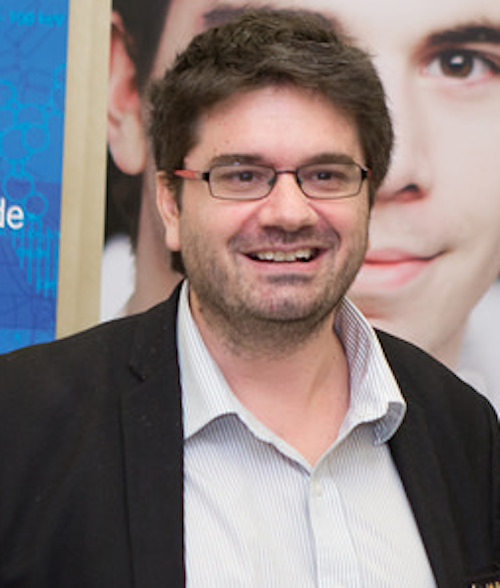
Chemical Sciences
Italy
Federico Rosei has held the Canada Research Chair (Junior) in Nanostructured Organic and Inorganic Materials between 2003 and 2013. He is Professor and Director of Institut National de la Recherche Scientifique, Énergie, Matériaux et Télécommunications, Université du Québec, Varennes (QC) Canada. Since January 2014 he holds the UNESCO Chair in Materials and Technologies for Energy Conversion, Saving and Storage and since May 2016 he also holds the Canada Research Chair (Senior) in Nanostructured Materials. He received MSc and PhD degrees from the University of Rome “La Sapienza” in 1996 and 2001, respectively.
Dr Rosei’s research interests focus on the properties of nanostructured materials, and on how to control their size, shape, composition, stability and positioning when grown on suitable substrates. He has extensive experience in fabricating, processing and characterizing inorganic, organic and biocompatible nanomaterials. His research has been supported by multiple funding sources from the Province of Quebec, the Federal Government of Canada as well as international agencies, for a total in excess of M$ 16. He has worked in partnership with over twenty Canadian R&D companies. He is co-inventor of three patents and has published over 270articles in prestigious international journals (including Science, Nature Photonics, Proceedings of the National Academy of Sciences, Advanced Materials, Angewandte Chemie Int. Ed., Journal of the American Chemical Society, Advanced Functional Materials, Advanced Energy Materials, Nanoletters, ACS Nano, Biomaterials, Small, Physical Review Letters, Nanoscale, Chem. Comm., Applied Physics Letters, Physical Review B, etc.), has been invited to speak at over 275 international conferences and has given over 215 seminars and colloquia, over 50 professional development lectures and 35 public lectures in 44 countries on all inhabited continents. His publications have been cited over 9400 times and his H index is 52.
He is Fellow of numerous prestigious national and international societies and academies, including: the Royal Society of Canada, the European Academy of Science, the African Academy of Sciences, the World Academy of Art and Science, the World Academy of Ceramics, the American Physical Society, the American Association for the Advancement of Science, the Optical Society of America, SPIE, the Canadian Academy of Engineering, ASM International, the Royal Society of Chemistry (UK), the Institute of Physics, the Institution of Engineering and Technology, the Institute of Materials, Metallurgy and Mining, the Engineering Institute of Canada, the Australian Institute of Physics, Honorary Fellow of the Chinese Chemical Society, Foreign Member of the Mexican Academy of Engineering, Senior Member of IEEE, Member of the Global Young Academy and Member of the Sigma Xi Society.
He has received several awards and honours, including the FQRNT Strategic Professorship (2002–2007), the Tan Chin Tuan visiting Fellowship (NTU 2008), the Senior Gledden Visiting Fellowship (UWA 2009), Professor at Large at UWA (2010–2012), a Marie Curie Post-Doctoral Fellowship from the European Union (2001), a junior Canada Research Chair (2003–2013), a senior Canada Research Chair (2016–2023) a Friedrich Wilhelm Bessel Award from the Alexander von Humboldt foundation (2011), the Rutherford Memorial Medal in Chemistry (Royal Society of Canada 2011), the Herzberg Medal (Canadian Association of Physics 2013), the Brian Ives lectureship award (ASM international / Canada Council 2013), the Award for Excellence in Materials Chemistry (Canadian Society for Chemistry 2014), the NSERC EWR Steacie Memorial Fellowship (2014), the José Vasconcelos Award for Education (World Cultural Council 2014), the IEEE NTC Distinguished Lectureship 2015–2016, the Lash Miller Award (Canada Section, Electrochemical Society 2015), the Chang Jiang Scholar Award (Government of China), the Khwarizmi International Award from the Iran Research Organization for Science and Technology (IROST), the Recognition for Excellence in Leadership from the American Vacuum Society (2015), the Selby Fellowship from the Australian Academy of Sciences (2016), the John C. Polanyi Award (Canadian Society for Chemistry 2016), the Outstanding Engineer Award (IEEE Canada 2017), the President’s Visiting Fellowship for Distinguished Scientists (Chinese Academy of Sciences 2017) and the Sigma Xi Distinguished Lectureship (2018–2020).
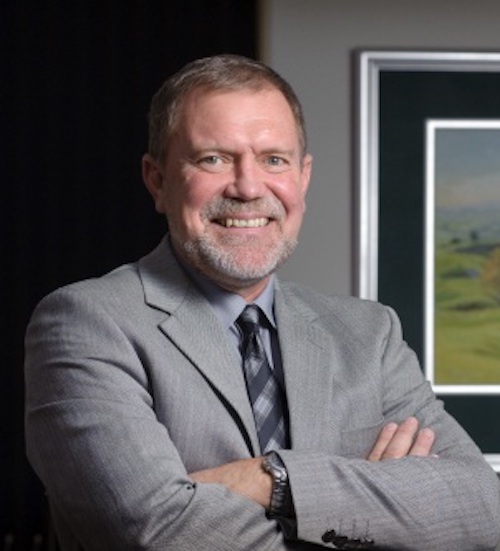
Biosciences
New Zealand
Don Cowan was educated (BSc, MSc, PhD) at the University of Waikato (New Zealand), before moving to a Lectureship at University College London (UK) in 1985. In 2001 he was appointed to the Chair of Microbiology and as Head of the Department of Biotechnology at the University of the Western Cape (RSA), where he established the Institute for Microbial Ecology and Metagenomics. In 2012 he moved to the University of Pretoria as the Director of both the Genomics Research Institute and the Centre for Microbial Ecology and Genomics.
Don’s research is in microbial ecology and microbial genomics, where he and his team use modern ‘omics’ methods to understand the diversity and function of microorganisms in different environments. He works with many other research laboratories in South Africa and across the world. Don has published over 340 research papers, review articles and book chapters. He has an h-index of 42 (Scopus).
In the course of his career, Don has trained and graduated 38 PhD students and 47 MSc students. He currently supervises or co-supervises 3 research fellows, 10 postdoctoral researchers, 10 PhDs and 7 MScs.
Don is also Adjunct Professor at the University of Waikato (NZ), was elected as a Fellow of the Royal Society of South Africa in 2007, as a Member of the Academy of Sciences of South Africa in 2008, and as an Honorary Fellow of the Royal Society of New Zealand in 2009. He was awarded the University of the Western Cape Vice-Rector’s Award for Research Excellence in 2008 and the South African Society for Microbiology Medal for Research
Excellence in 2009. He was awarded an NRF A-rating in 2013 and received the National Science and Technology Forum Capacity Development award in 2014. In April 2015 he received the University of Pretoria’s highest research award, the Chancellor’s Medal. He was elected as a Fellow of African Academy of Sciences in March 2017.
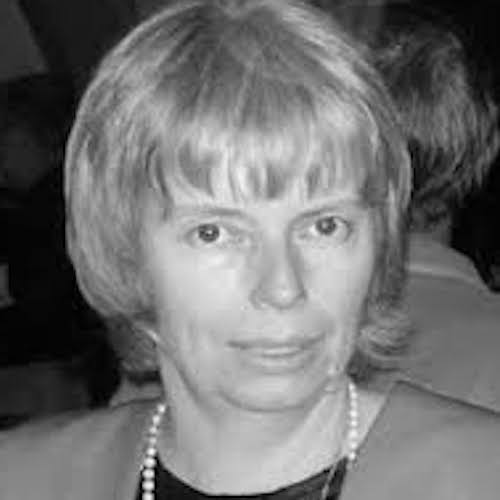
Biosciences
Ireland
WINGFIELD Brenda D.
Brenda Diana Wingfield was born in Livingstone, Northern Rhodesia [Zambia]. She obtained a B.S. degree in Biochemistry and Genetics from the University of Natal and a B.S. Med. (Hons) degree at the University of Cape Town Medical School in Medical Biochemistry. In 1984 she was awarded an M.S. degree in Biochemistry at the University of Minnesota. She was awarded her Ph.D. in 1989 by the University of Stellenbosch.
She accepted a post as research officer in the Department of Biochemistry at the University of Cape Town in 1984. In this position, her primary objective was to establish a laboratory to study the molecular biology of histone proteins in sea urchins. In 1986 she moved to the University of Stellenbosch in the position of Research Officer and commenced research on wine killer yeasts. This study was completed at the end of 1989 when she moved to a position as lecturer and researcher in the Department of Microbiology and Biochemistry at the University of the Orange Free State, Bloemfontein.
During the following 10 years at the University of the Orange Free State, Wingfield developed a research program on the molecular taxonomy of fungi that cause diseases of forest plantation trees and directed the Forest Molecular Biology Co-operative Program. She is currently a Professor in the Department of Genetics at the University of Pretoria. She served the Faculty of Natural and Agricultural Science as deputy Dean and Acting Dean before her recent appointment as a Research Chair in Fungal Genomics, a prestigious appointment fully funded by the South African Department of Science and Technology (DST) and managed by the National Research Foundation (NRF).
The success of Wingfield’s research program has largely been as the result of working at the intersection of two research areas, namely molecular genetics and mycology. Her research group is often the first to apply new (particularly DNA based) techniques to answer questions regarding forest pathogens. These DNA based studies have proved to be more powerful at distinguishing between species than the traditional morphological methods. She and colleagues frequently, therefore, find that a particular pathogen under investigation has not previously been described. Her work has contributed strongly to a dramatic re-formulation of fungal taxonomic method (the New Code), which will substantially facilitate diagnostics of fungal plant pathogens.
Wingfield and her collaborators have produced molecular based phylogenies for many of the important tree pathogens. This has allowed her to analyse the species diversity of these fungi and has resulted in the description of novel fungal taxa including globally important tree pathogens. Her continuously expanding phylogenetic analyses allow her and her collaborators to interrogate questions regarding the evolution and spread of these fungi. These studies have served to highlight the fact that fungi have probably spread around the world more than might have been anticipated and despite significant geographical barriers.
Her research concerning the phylogenetic relationships between fungal pathogens of trees has promoted an increasing focus on the population genetics of tree pathogens. She has pursued questions relating to the centers of origin and diversity of many different tree pathogens. In many cases the results have been surprising and intriguing. Her research is sometimes frustrated by the fact that it is difficult (or impossible) to obtain appropriate isolates, but the global reach of her research group, and collaborations with large numbers of scientists in other parts of the world have allowed her and her students some unique research opportunities. There are incidences where results have been surprising and unexpected. In many cases, this is because there have not been previous studies on similar fungi. Overall, these population studies have added substantial depth to already interesting phylogenetic studies.
More recently Wingfield has developed a research programme on Fungal Genomics. She and colleagues sequenced the first Fungal Genome in Africa, Fusarium circinatum. In the last decade hundreds of fungal genomes have been sequenced and form the basis of a number of research projects focused on mating systems, speciation and pathogenicity of fungal tree pathogens.
Wingfield's career includes very significant service as a mentor and teacher of young scientists. She has advised 45 honors students, 50 M.S. students, 54 Ph.D. students, and 19 post-doctoral scholars. She has taught numerous courses, eight of which have been at the University of Pretoria and has continued to mentor students after she assumed her considerable administrative responsibilities as a Dean. She is an ad hoc or appointed editor for numerous scientific journals and has served as an external examiner for theses in South Africa, Hong Kong, Australia and Namibia.
Wingfield is the past chair of the National Science and Technology Forum, the current Secretary General of the International Society of Plant Pathology, project leader in the DST, NRF Centre of Excellence in Tree Health Biotechnology, and serves as vice President of the Academy of Science of South Africa. She is an active member of numerous professional societies, task forces and working groups, and has played a key role in developing the molecular capabilities and expertise of the Forestry and Agricultural Biotechnology Institute and the Department of Genetics at the University of Pretoria. She is a Fellow of the Royal Society of South Africa, the Third World Academy of Science, and the African Academy of Science. She has received numerous other awards including the University of Pretoria Chancellors Award for Research, the Department of Science and Technology Distinguished Women in Science Award, the African Union Awards for Women in Science and the Christiaan Hendrik Persoon Medal which is the highest recognition awarded by the Southern African Society of Plant Pathology.
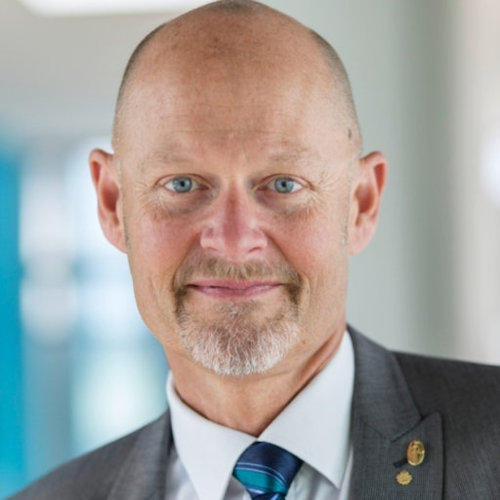
Biosciences
Sweden
Prof. Hansson is a Swedish researcher working as Director of the Department of Evolutionary Neuroethology at the Max Planck Institute for Chemical Ecology, Jena, Germany. He was also vice president of the Max Planck Society (MPS) 2014-2020. In his term as vice president, Prof. Hansson was responsible for the 27 Max Planck institutes that focus on biology and medicine in Germany, and in Florida, USA. He also coordinated the international work of the MPS with partner organisations in Shanghai and Buenos Aires, and 19 Max Planck centres all over the world.
Hansson studied biology at Lund University where he received a Bachelor of Science degree in Biology in 1982. In 1988 he defended his PhD thesis in Ecology. From 1989-90 he worked as postdoc at the University of Arizona and returned 1990 to a junior professorship in Lund. In 1992 he became Associate Professor and from 2000 until 2001 he was a Professor for Chemical Ecology at Lund University (2000). From 2001 he was Professor and Head of the Chemical Ecology department at the Swedish University of Agricultural Sciences (SLU) in Alnarp, Sweden, until he was appointed Director and MPS Scientific Member at the Max Planck Institute for Chemical Ecology in 2006. He is head of the Department of Evolutionary Neuroethology. In 2010 the Friedrich Schiller University in Jena appointed him Honorary Professor.
Hansson's research focuses on neuroethological aspects of insect-insect and insect-plant interactions. He is mainly studying insect olfaction, where his central questions are: How is semiochemical information (odors) detected by the antenna and processed in the insect brain, how did these detection and processing systems evolve, and how does olfaction guide insect behavior. He also compares these systems to other land-living arthropods, as the giant robber crab on Christmas Island.
In research, Prof. Hansson continues to work as a neuroethologist in close collaboration with his group leaders in Jena. His work centres on the neural basis of insect behaviour and the interactions between insects and their host plants. He is particularly interested in how scents affect the behaviour of insects and other arthropods, and in the evolution of olfactory function from a behavioural and ecological perspective. Hansson had published more than 300 papers in international, peer-reviewed journals and has an h-factor of 62 (WoS).
From 2006-20016, Prof. Hansson was part of the leadership of the Swedish Linnaeus project Insect Chemical Ecology, Ethology and Evolution. From 2020 he is also one of the leaders of the Max Planck Center Next Generation Insect Chemical Ecology (nGICE) in collaboration with SLU and Lund University. During his career, Hansson has also worked at universities and research institutions in Germany, Sweden, Japan, Kenya, the United Kingdom and the United States.
Hansson has had a strong connection to the International Centre for Insect Physiology and Ecology, icipe, since the early 1990s, when he worked at the Centre on locust and stem borer chemical communication. He has been a member of the Governing Council of icipe since 2006 and chaired the council 2014-2017 and 2020-. Apart from being a Fellow of the African Academy of Sciences and Honorary Fellow of the Royal Entomological Society. He is also member of the Royal Swedish Academy of Sciences, the Royal Swedish Academy of Agriculture and Forestry, The German National Academy of Sciences Leopoldina, The Finnish Society of Sciences and Letters and of the Saxonian Academy.
Pagination

Elected: